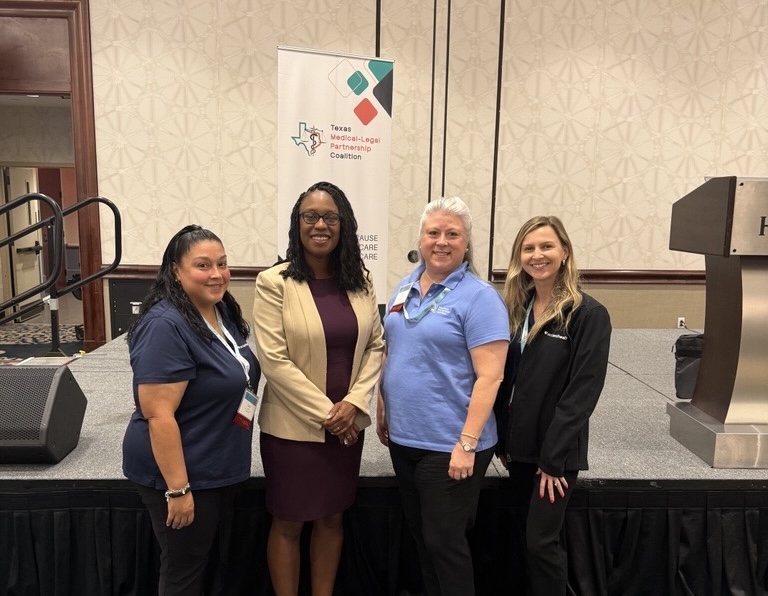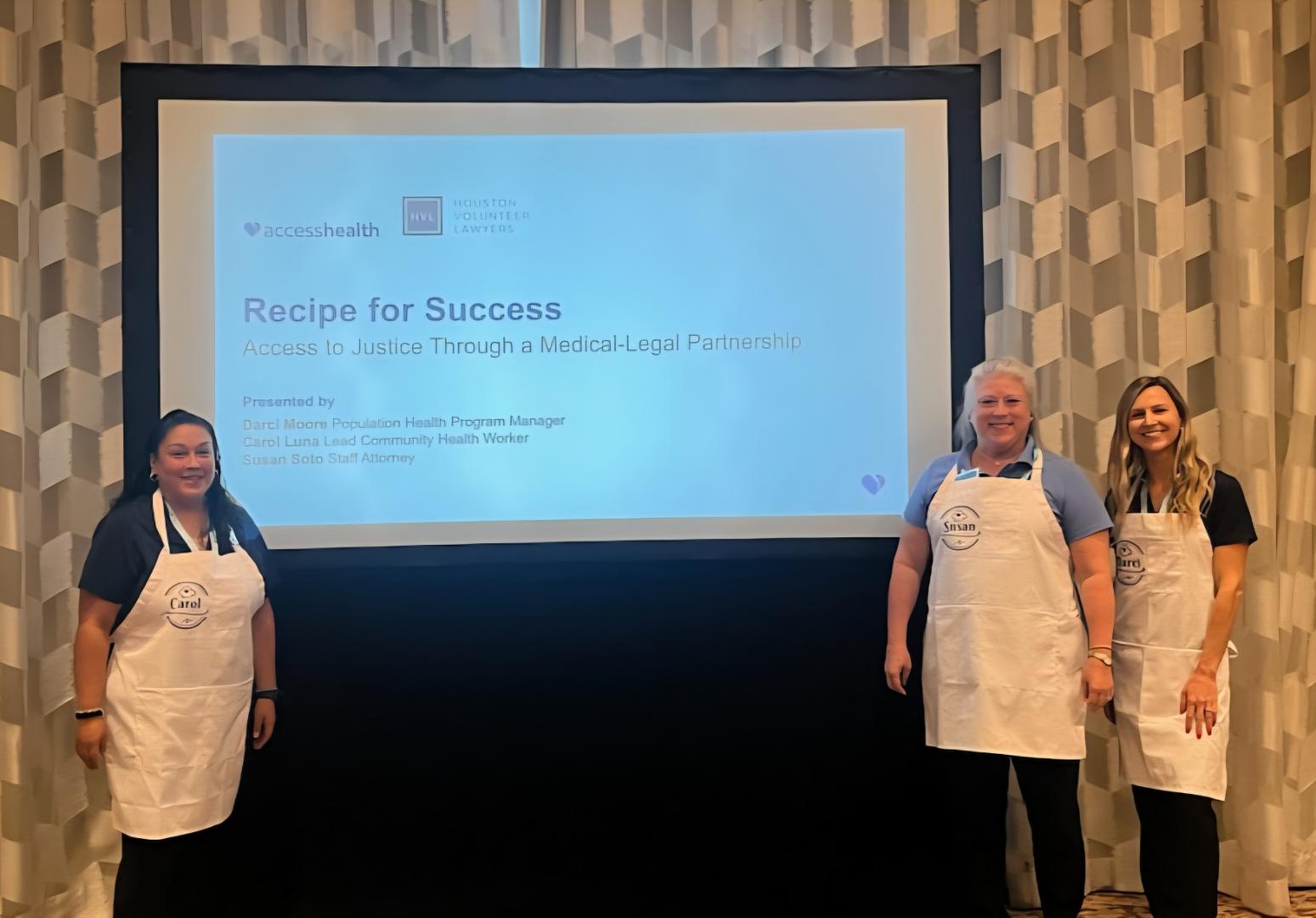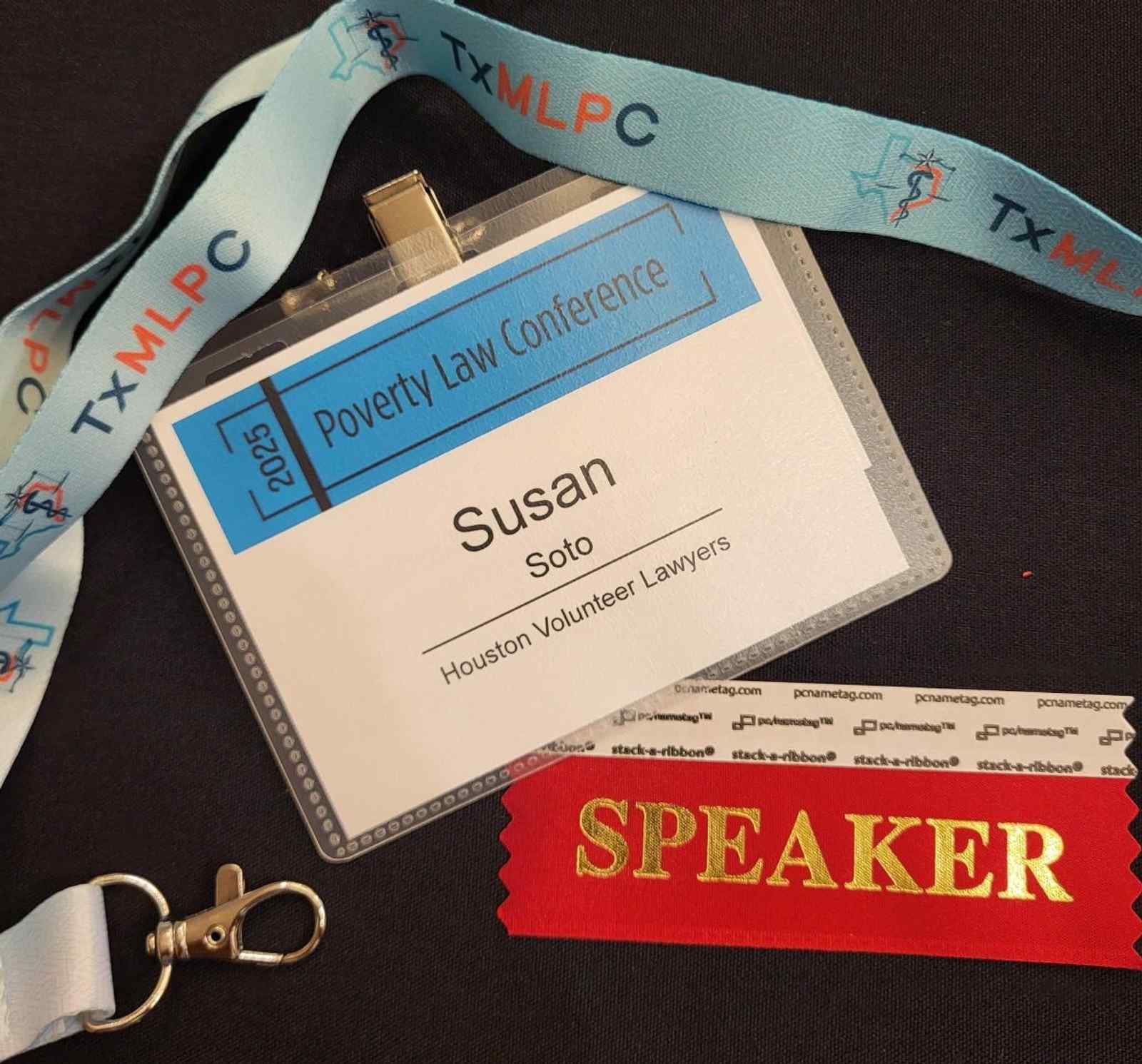AccessHealth’s Medical-Legal Partnership program takes center stage in Austin
AccessHealth’s Medical-Legal Partnership (MLP) Lawyer, Susan Soto and her team traveled to Austin to speak at the Poverty Law Conference, a major statewide gathering of legal aid and community health professionals. Not only did she present on AccessHealth’s innovative MLP program, she was also named to the Texas MLP Coalition Board of Directors, a milestone that holds deep personal and professional significance.
“Presenting a session on our MLP at a state-level conference was confirmation that MLPs are relevant and necessary,” Susan shared. “Being selected as a member of the Texas MLP Coalition Board of Directors is an honor and a privilege. I look forward to contributing to the emerging MLP landscape in Texas.”

Sharing AccessHealth’s Story
During her presentation, Susan and the MLP team highlighted the unique partnership between AccessHealth and their legal aid collaborators, the history of how the program was formed, and firsthand input from a Community Health Worker about its impact on patients. They also explored the legal ethics of pro bono representation—since the legal partner uses a pro bono model to provide services.
Their objective was twofold:
- To share insights with organizations interested in starting their own MLPs, and
- To offer practical solutions for existing MLPs looking to enhance their impact.
Why Medical-Legal Partnerships Matter
Medical-Legal Partnerships are built on a simple but powerful idea: unresolved legal needs can lead to health-harming issues. Whether through direct legal services, advice and counsel, or hybrid models, MLPs help address non-medical drivers of health, such as housing instability, benefits access, or employment issues. These challenges can affect a patient’s mental and physical well-being.
AccessHealth holds the only MLP in Fort Bend County, serving diverse communities across rural and suburban areas. Since the first MLPs launched in Brownsville and San Antonio in 2008, the number of programs across Texas has grown steadily. Today the total is an estimated 24 statewide. With more than 10% of Texans living in poverty and fewer than one civil legal aid attorney for every 10,000 low-income Texan, MLPs are a critical tool in closing the justice gap and supporting holistic healthcare.

Looking Ahead
For Susan, the conference was also a valuable opportunity to connect with colleagues across Texas, share strategies, and gain new perspectives.
“Hearing how others approach the gigantic task of closing the justice gap was motivating,” she reflected. “It gave me more tools to work with as I continue to serve AccessHealth patients.”
Now serving on the Texas MLP Coalition Board, Susan plans to use her platform to elevate the MLP model statewide.
“As the movement grows, I will be in a position tell the MLP story to a wider audience as a director of the coalition, including lawmakers, healthcare stakeholders and potential funders, increasing opportunities for new programs across the state.”
